Research
Our citosina
The Health Sciences Technology Park promotes initiatives to stimulate basic and clinical research in Health and Biomedicine, through prestigious, advanced biotechnology and healthcare research centres.
The HSTP is a technological space that promotes relationships between researchers, sectoral agents and the financial system so that the scientific community can enjoy some of the profits generated by their research.
The critical mass of scientific and technological resources at the HSTP encourages synergies and makes up a very attractive offer for health-related sectors since, for a biomedical company, location in a university-level scientific milieu is essential in order to engage in cutting-edge projects and innovation.
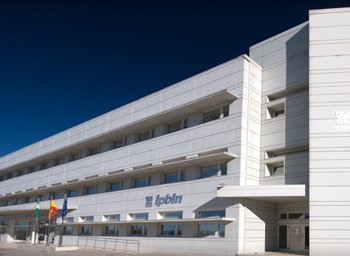
López Neyra Institute of Parasitology and Biomedicine (IPBLN)
Part of the Higher Scientific Research Council (CSIC), this Institute is dedicated to biomedical research, covering fields including immunology, molecular biology, cell biology and the pharmacology of diseases of global significance. It has three departments: Cell Biology and Immunology, Molecular Biology and Biochemistry and Molecular Pharmacology. Since its foundation as the National Institute of Parasitology, the IPBLN has evolved to become a wider, more modern, better equipped research centre whose mission is to address issues of basic and applied biomedical interest. The workforce of the IPBLN-CSIC is growing continually and it has ever greater capacity to capture resources and for scientific production.
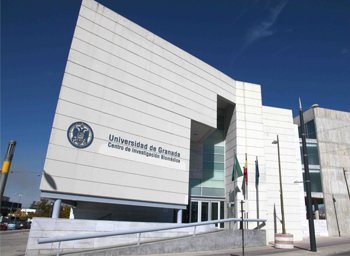
Biomedical Research Center
This centre, attached to the University of Granada, is the home of the following research groups from different University institutes: the Institute of Biotechnology, the Federico Olóriz Neuroscience Institute, the José Mataix Food Technology and Nutrition Institute, and the Institute of Biopathology and Regenerative Medicine. The Biomedical Research Centre also houses the Andalusian Stem Cell Bank, which is a result of the commitment and collaboration of the Andalusian Government’s Regional Ministry of Health and the University of Granada. Since its creation in November 2003, the Stem Cell Bank has expanded its research activity, undertaking research projects under the Cell Therapy and Regenerative Medicine Programme. Pioneering cell research in Spain earned it the status of Central Node of the National Cell Line Bank, a role it has held since 2004, under an agreement with the Carlos III Research Institute.
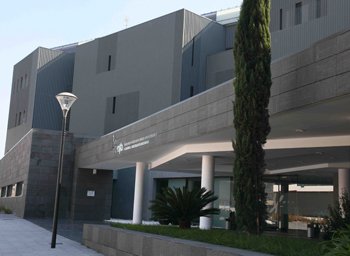
Genomics and Oncological Research Centre (GENyO)
The Pfizer-University of Granada-Andalusian Regional Government Centre for Genomics and Oncological Research (GENyO) is a mixed centre whose partners are the Regional Ministry of Health, the Regional Ministry of Innovation, Science and Enterprise, the University of Granada and the pharmaceutical company, Pfizer. It was conceived as a space of excellence for research into the genomics of diseases -including cancer- and into the influence of genetic inheritance on the response of the organism to certain drugs. GENyO was created as a multidisciplinary research centre where the interaction of different professionals from the healthcare industry, University and business would generate new systems for the diagnosis, prevention and treatment of disease based on the simultaneous, co-ordinated application of the latest discoveries in the different areas of genomics. The Centre works within the Andalusian Clinical Genetics and Genomic Medicine Research Programme, one of the three research programmes in Advanced Therapies under way in Andalusia, along with the Cell Therapy and Regenerative Medicine Research Programme and the Nano-Medicine Research Programme. ALTHIA is located within this building.

MEDINA Foundation - the Centre of Excellence for Research into Innovative Medicines in Andalusia
MEDINA is a public-private research centre established as a result of the alliance between the Andalusian Regional Government, the University of Granada and Merck Sharp & Dohme de España, S.A. It is an independent, not-for-profit body that focuses on research contracts and collaboration with academic and industrial groups worldwide. MEDINA’s mission is to discover candidates for innovative biomarkers and drugs in collaboration with academic groups and pharmaceutical and biotechnology companies, as well as new products for the agri-food sector (crop protection), consumer products, new enzymes and high biotechnological value products for industrial processes. MEDINA has one of the most important collections of microbial cultures and one of the most chemically diverse libraries of natural products, with a long track record of success in the discovery of candidates for the development of new drugs.
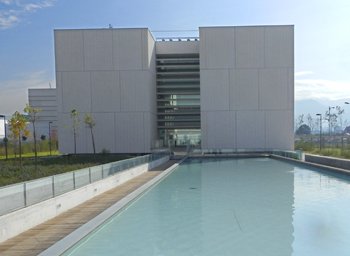
Functional Food Research and Development Centre (CIDAF)
This research centre is specialised in functional and nutraceutic foods and is promoted by the University of Granada and the Andalusian Regional Government. Its main mission is the transfer of knowledge generated by the research groups working in the field of nutraceutic and functional foods, in collaboration with agri-food companies. The objective is to generate new, transferable scientific knowledge oriented towards applications that can be used in the design, production and characterisation of safe, healthy, nutritional complements and foodstuffs, covering all of the different stages of the R&D process, and transferring the results to the productive sector in order to generate added value. Its areas of activity are the characterisation, quality and safety of functional foods, the analysis of the bioactivity of the constituents of foodstuffs, new nutraceutic and functional food production and conservation technologies, marketing support and legislation.
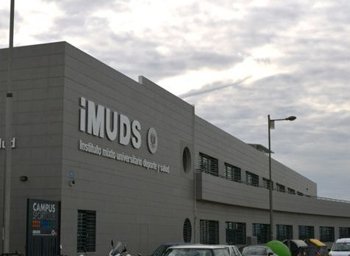
Sports and Health Institute
The latest research is undertaken in this centre in the fields of biomechanics (techniques, strength and equipment), biomedicine (physiology, traumatology, nutrition, physiotherapy and doping); sport and training (individual and team sports); psycho-sociological studies and humanities (psychology, sociology, law); and new technologies (IT, telecommunications and electronics). The Institute is fully supplied with advanced equipment to promote sports and health research, including a snow simulator with an artificial jump to imitate the movements of a ski jumper and tensiomyography measuring apparatus to monitor the performance of the muscles. Furthermore, it forms part of the same group of professionals belonging to the Andalusian Sports Medicine Centre (CAMD). The building also has multidisciplinary, biomechanics and biomedicine laboratories, as well as classrooms, offices and an ample therapeutical sports area including a water zone.
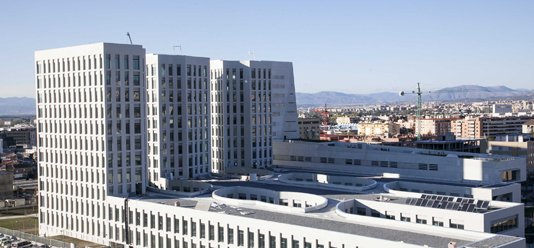
East Andalusian Public Foundation for Biosanitary Research (FIBAO)
This is a not-for-profit public sector foundation of the Andalusian Regional Government entrusted with the management of research resources. The purpose of the Foundation is the management and promotion of biomedical research, and enhancing professional promotion. The Foundation’s activities are carefully planned to reflect at all times the social needs of the area and are adapted to the Regional Government’s guidelines and instructions.

Cabrera International Institute of Phlebology
This Institute was established as a company in 2009 as a result of the diversification of business development in the field of sclerosant microfoam, patented in 1994, with the objective of continuing and expanding the work undertaken over a period of more than 15 years in the treatment of venous disease with non-invasive procedures. To do so, the Institute focuses on several strategic areas: R&D&I; promotion, development, research and innovation in sclerosant microfoam treatments, their application to venous and new pathologies; to be a pioneer in translational research into new pharmaceutical vehicles, biotechnology and gene therapy.
